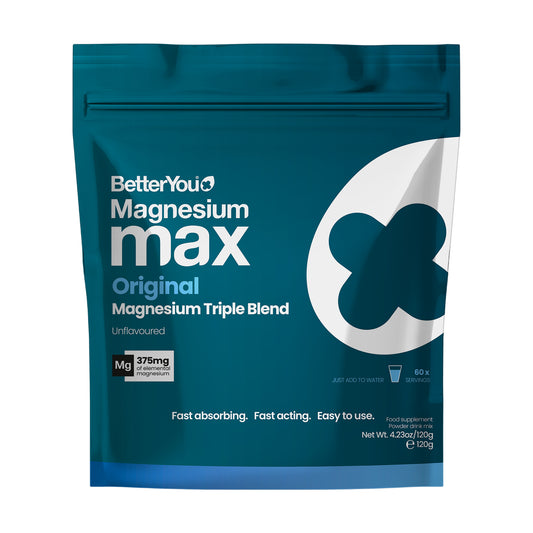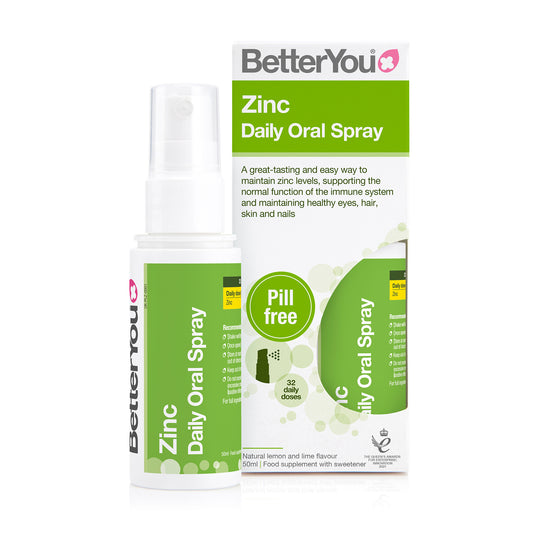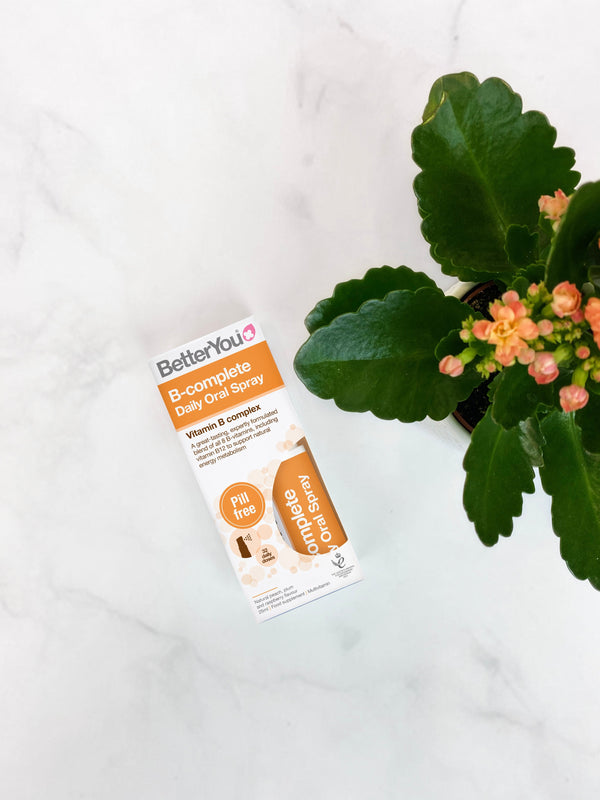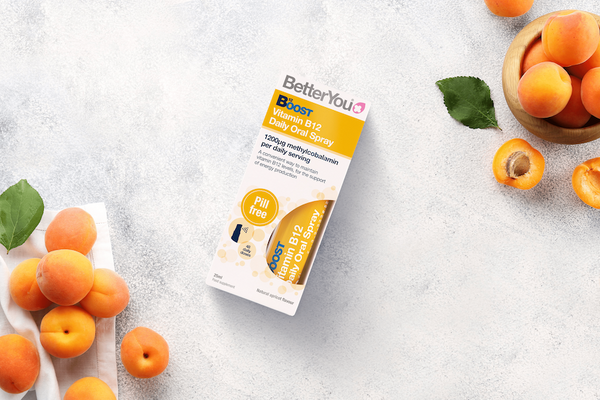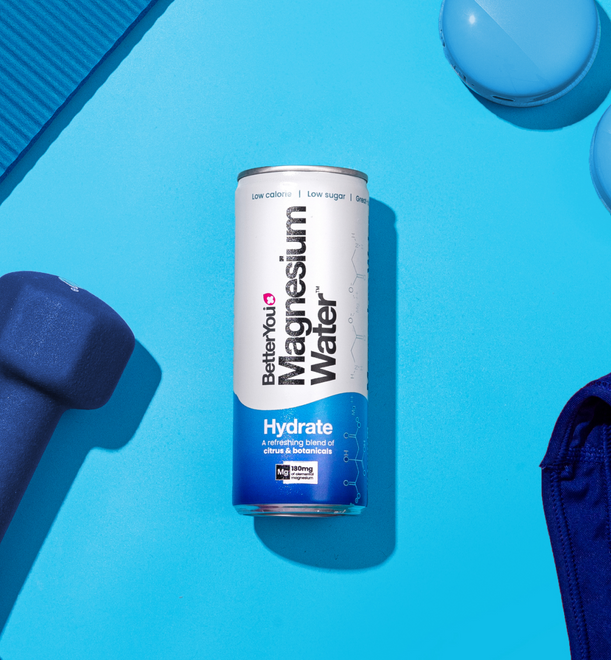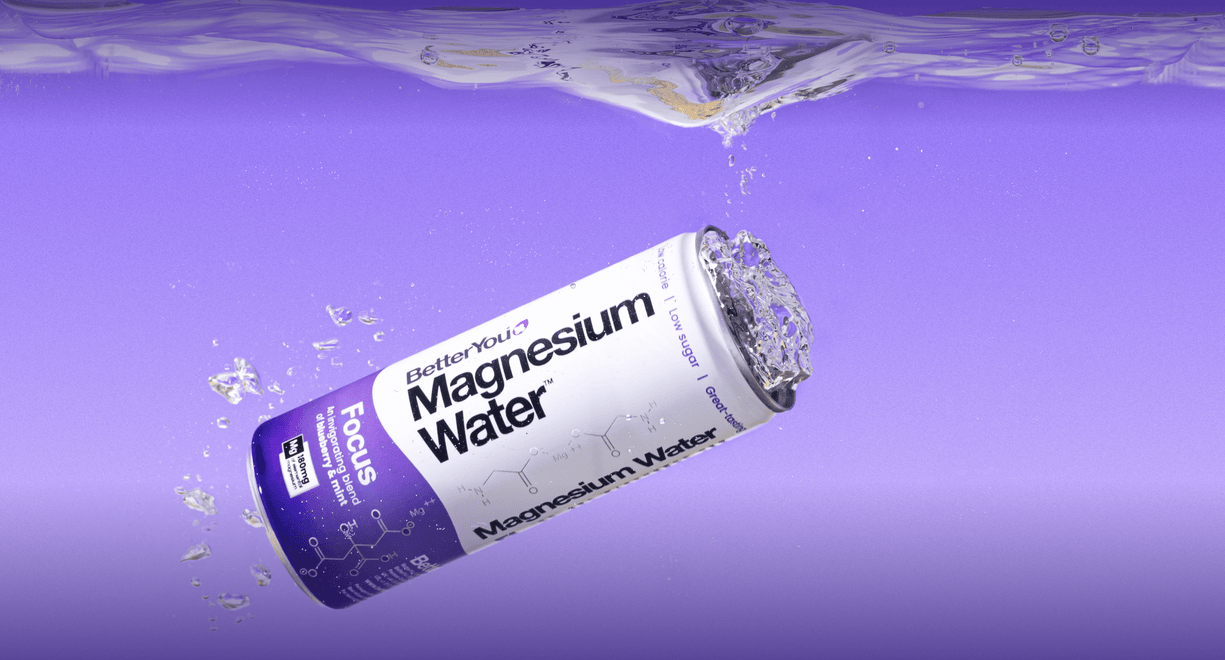Zinc deficiency can leave you mentally tired and with slow healing wounds. Learn how to spot the signs of deficiency, causes of, and the appropriate zinc dosage. Avoid low zinc levels with BetterYou supplements.
Table of Contents:
- What is Zinc Deficiency?
- 8 Signs of Zinc Deficiency
- Are You at Risk of Zinc Deficiency?
- How Much Zinc Per Day?
- How to Test for Deficiency
- How to Increase Your Zinc Levels
- 9 Sources of Zinc
What is Zinc Deficiency?
Zinc deficiency is the result of low levels of this vital nutrient. Zinc is one of the essential vitamins and minerals that your body needs to stay healthy. Your body needs certain amounts of these nutrients to work best. If your levels become too low, then you become what’s known as deficient. If levels are too low, zinc supplements can help to encourage recovery from deficiency.
Zinc benefits your health in many vital ways. It is important for immune function, which helps to protect you from sickness and disease. It also aids wound healing, meaning you recover from cuts and scrapes. It also speeds up the reaction of RNA, which is an integral part of the way your body makes your genes. Gene expression is how the body “reads” information about the cells and products it makes, and zinc is essential to this process. Zinc supplements are good for keeping optimal levels of this vital nutrient.
8 Signs of Zinc Deficiency
There are signs that come with deficiency because the body does not have the vital nutrients it needs to function properly. Spotting these signs is essential to keeping your vitamin and mineral levels at their optimum. Common signs of zinc deficiency include:
- Mental tiredness - Due to zinc’s role within enzyme reactions within the body, if you don’t have enough, your metabolism suffers. This leads to tiredness and fatigue, which could also be a sign of sleep deprivation.
- Wounds which don’t heal - Zinc contributes to the way your wounds heal, and is a vital skin supplement. Those who are deficient in zinc have wounds which heal more slowly, which could also be a sign of vitamin K deficiency.
- Hair loss - Hair is made of protein, and zinc regulates the structures of the elements which go into making proteins. With zinc deficiency, your body can struggle to make these proteins as well, thus leading to hair loss. Vitamin C deficiency can also lead to complications with body hair, again due to the relationship the nutrient has with protein.
- Loss of taste or smell - The enzymes on your tongue and taste buds, that are responsible for the senses of taste and smell, depend on zinc to work. If you are deficient, a symptom can include losing these sensations.
- Weight loss - Not having enough zinc can cause problems with the function of your thyroid. The thyroid is a gland in the neck which releases hormones. If you have zinc deficiency, your metabolism can suffer and this can affect your weight.
- Loss of appetite - Zinc has an impact on the levels of ghrelin and leptin (the satiety hormones) in your body. These ‘hunger hormones’ affect your appetite. Those with zinc deficiency could experience lower levels of these hormones, and therefore, be left without much appetite, which also contributes to weight loss.
- Diarrhoea - It is not clear why zinc deficiency causes diarrhoea. However, if it should occur, this can perpetuate the problem as nutrients cannot be absorbed, thus leading further to zinc deficiency.
- Impotence - Zinc is a mineral which is involved in the production of testosterone in males. Thanks to this, zinc deficiency may lead to erectile dysfunction if levels become too low.
You should seek medical advice from your GP or other health professional if you think you have these signs of zinc deficiency. A medical professional may arrange a test to identify whether you may have a vitamin or mineral deficiency. Always consult medical advice before taking supplements.
Are You at Risk of Being Deficient?
Although zinc deficiency can affect anyone with levels that are below the recommended intakes, some may be more at risk.
- Children - Breastfeeding infants are more likely to suffer from zinc deficiency. Children’s meals are naturally more imbalanced and there is often a low concentration of zinc in breastmilk. Breastfeeding supplements are designed to provide you, and your infant, with the vital nutrients you both require.
- Those planning to be parents - Whether pregnant or trying to conceive, avoiding zinc deficiency is key. When pregnant, your body needs more nutrients in order to care for you and your little one at the important time. Supporting your diet with pregnancy supplements can help encourage optimal vitamin and mineral levels. As we know, zinc deficiency could lead to male impotence, therefore zinc levels are recommended at their optimum if you are trying to conceive. Our conception vitamins are designed to provide the necessary nutrients for this time.
- Those with inadequate dietary intakes - If you don’t have adequate intake of key nutrients in your diet, including zinc, you may be more at risk of suffering a deficiency and the side effects which come with them. Those who have a restricted diet may consider taking BetterYou’s vegan supplements, vegetarian supplements, or gluten-free supplements to support a balanced nutritional intake.
- Those of more advanced age - Older adults may be more at risk of zinc deficiency because they may not eat or have access to a wide variety of foods. Certain medications can also affect zinc levels.
It is important to understand if you are more at risk of zinc deficiency. It is essential to helping you avoid the above side effects. It’s necessary to keep to recommended amounts of supplements and nutritional values in your diet. Always consult a medical professional if you think you may be at risk of deficiency.
How Much Zinc Per Day?
Zinc supplements can help to increase your levels, to help avoid zinc deficiency. At BetterYou, we have pioneered pill-free supplements to make nutritional intake even easier. With hassle-free oral sprays, you can encourage your daily intake without the need to take a tablet.
The body does not make zinc, so you need to acquire this mineral through your diet or supplements like a Zinc Oral Spray in order to have optimum levels.
According to the NHS, for those aged 19 to 64 years, the daily recommended intake of zinc is:
- 9.5mg for men
- 7mg for women
Taking high doses of zinc reduces the amount of copper the body can absorb. This can lead to anaemia and weakening of the bones. That is why it is important to keep to the recommended intakes to ensure your nutritional needs are met. This includes staying within the tolerable upper limit of 40mg.
How to Test for Deficiency
Spotting if you have low levels of nutrients is key to ensuring your body is receiving the dosage. It also helps to prevent you being deficient in the must-have vitamins and minerals your body requires.
BetterYou’s Health Test Kits allow you to check vital vitamin and mineral levels at home. With BetterYou, you can easily check whether you are at risk of deficiencies with:
- Vitamin D Test Kit
- Iron Test Kit
- Vitamin B Test Kit.
This can help identify vitamin B deficiency, iron deficiency, or vitamin D deficiency. That way, you can know whether you need multivitamin supplements to encourage your intake and help you see the benefits of zinc.
9 Sources of Zinc
Avoiding zinc deficiency means including zinc in your daily intake of nutrients. This can be found naturally in food, as well as in supplements. Encouraging your intake of these foods can support your body against zinc deficiency. The body does not make zinc and so you need to regularly intake the mineral in order to experience the benefits it can provide. Sources of zinc include:
- Zinc supplements
- Fortified cereals
- Whole grains
- Milk, and other dairy products
- Oysters
- Red meat
- Poultry
- Beans
- Nuts
Including these sources of zinc in your diet, alongside supplementation, can help to encourage a proper nutritional intake. Avoiding zinc deficiency, and its symptoms, begins with knowing how to supplement effectively.
Pill-free supplements from BetterYou
Our range of vitamin oral sprays and topical magnesium supplements provide a fast, effective alternative to traditional tables and capsules. Scientifically formulated to deliver maximum nutrient absorption, with minimum fuss, to help you feel and live better.
Take control of your health today with our magnesium supplements to aid natural sleep, vitamin D supplements to boost your immunity and our at-home health checks to get a clear picture of your nutrient levels.
